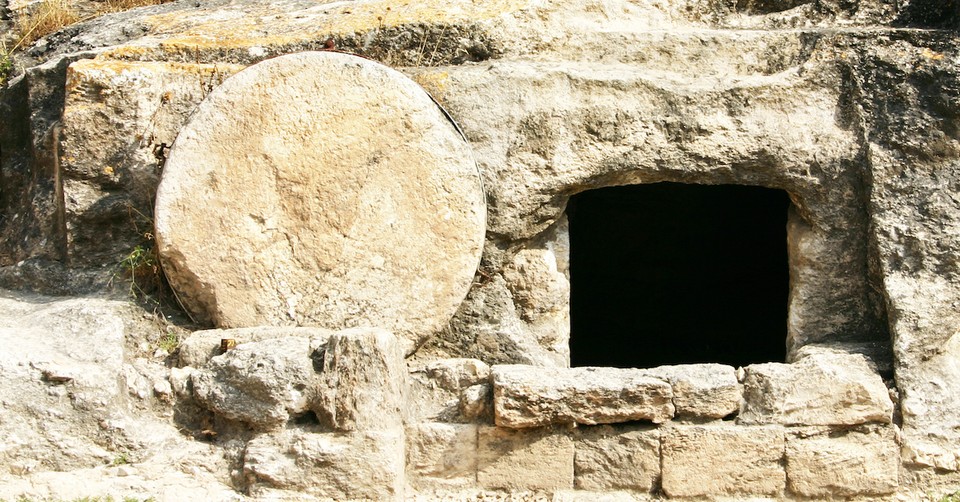Did Jesus Actually Descend into Hell When He Died?

When the question comes up on whether Jesus went to hell after the crucifixion, several may scratch their heads in confusion. Why would Jesus go to hell if He was sent by God to die for our sins and was to be resurrected on the third day to return to heaven? Couldn’t He just hover in paradise like the saints of the faith, waiting for the day God claimed the Earth again?
Scriptures have revealed that Jesus did in fact go to hell after being crucified on the cross, with the goal to get the keys (control) of Hades from Satan and establish the bridge for people to return to God after repenting of their sins. Instead of the punishment of hell forever for our sins, we now have the one and only way back to a thriving relationship with God the Father.
But why would Jesus have to go to hell to make this connection happen? With Him being the Son of God, would going to hell be required to save people?
The Bible clearly states the reasons why Jesus made the momentous trip to hell and how this shows even more the love of Jesus to bring us to God once again.
Get your FREE Easter Guide here. Have encouragement delivered straight to your inbox!
Where Did Jesus Descending into Hell Come From?
The first mention of Jesus descending to hell was found in a later form of the Apostles’ Creed, which is considered the Christian church’s oldest creed of the basic doctrines regarding the Christian faith, dating as far back as AD 140. Not exactly Scripture, these words are to be guidance to believers on confessing their faith in Jesus and understanding the key doctrines of the Christian faith.
The earlier versions of the creed don’t specifically say this term, “descending to hell,” and there are many different versions of the creed based on denominations, but the most used form states the following:
“I believe in God the Father Almighty, Maker of heaven and earth, and in Jesus Christ his only Son our Lord, Who was conceived by the Holy Ghost, Born of the Virgin Mary, Suffered under Pontius Pilate, was crucified, dead, and buried. He descended into hell; The third day He rose again from the dead; He ascended into heaven, and sitteth on the right hand of God the Father Almighty; From thence he shall come to judge the quick and the dead. I believe in the Holy Ghost; The Holy catholic Church, the Communion of Saints; The Forgiveness of sins; The Resurrection of the body, And the Life everlasting. Amen.
The idea also may have generated from Scripture where Jesus, while hanging on the cross, cries out to God about why He has forsaken Him (Matt. 27:46; also in Mark 15:34). Many may question why God the Father would turn His back on helping His only Son enduring sin, especially when it is clear God’s love was in and through Jesus.
However, the Bible outlines several times, both in the Old and New Testaments, that a savior was to be born on Earth as an embodiment of God, to die for our sins, and to connect us back to God after the Fall of Adam and Eve had separated us.
After Adam and Eve sinned, believers had to follow rituals and rules in order to be pleasing to God and have the blessing of going to heaven. Now with Jesus’ ministry and sacrifice, entrance into heaven wasn’t based on what rituals and rules you followed, but whether you accepted what Jesus did on the cross and that salvation through Him eternally changed you.
Did Jesus Go to Hell When He Died?
One clear Scripture that details Jesus going to hell can be found in Revelation 1:18: “I am He who lives, and was dead, and behold, I am alive forevermore. Amen. And I have the keys of Hades and of Death.” This gives a glimpse to the fact of what Jesus’s mission was in hell and how He was successful in it.
In Ephesians 4:9-10, it is stated that if Jesus ascended, He must “also first descended into the lower parts of the earth. He who descended is also the One who ascended far above all the heavens, that He might fill all things.”
So, if Jesus was to go to the grave, which He did for three days before His resurrection, death is considered the grave and where hell can be found. Death became part of our lives through the sin Adam and Eve committed, courtesy of Satan as the serpent, so Jesus had to go to the “lower parts of the earth” to fulfill all things for us for salvation before rejoining God in heaven.
Acts 2:31 also discusses Jesus in hell, mentioning that “His soul was not left in Hades, nor did His flesh see corruption.” This clarifies that even though Jesus went to hell, He didn’t remain there like others but accomplished His mission there and was brought back to heaven.
These verses, combined with the biblical knowledge that God placed all our sin on Jesus at the cross, prove that Jesus had to go to hell after His death on the cross in order to fulfill the eternal mission God had for Him.
What Happened to Jesus after He Died?
On earth, Jesus was prepared for burial and placed in the borrowed tomb of a friend where, as all there believed, He would be forever. However, on the third day, He rose again and ascended into heaven, with His fleshly body transformed into an eternal one.
Though Jesus’s body might have been there in the borrowed tomb for three days, His spirit had gone to hell to conquer the last enemy of God’s: death. First Corinthians 15:26-27 states this truth clearly: “The last enemy that will be destroyed is death. For ‘He has put all things under His feet.’”
Jesus had to go to hell to conquer the last enemy to be conquered, which was death, brought forth through the sin of Adam and Eve. God had never intended for people to experience death, but this changed when sin entered the Garden from Satan, who rules hell.
By rising again after going to hell, Jesus proved to Satan that death is not the end for people after they leave Earth. For those who accept His sacrifice and are eager to be reunited with God, the grave is only a passage to heaven and the complete avoidance of hell. Jesus claimed the keys of Hades from Satan to where Satan wouldn’t have any control over where a person was to go upon death, while God always did and always will have control.
What Did Jesus Accomplish with His Death?
As Jesus was breathing His last breaths on the cross, the environment around Him became darkened (Luke 23:44-45; Mark 15:33) and an earthquake occurred (Matt. 27:51). The books of Matthew, Mark, and Luke also state that the temple veil was torn apart, from top to bottom, as Jesus was dying.
This veil was to represent the barrier between the Most Holy (God) and those worthy to be in His presence at the temple, offering sacrifices in rituals to Him.
The torn veil and Jesus going to hell are one in the same, as the veil had been a way to separate people from God, but Jesus’s death, burial, and resurrection meant anyone could come before the Father without the need for an animal sacrifice or priesthood. Jesus’s entrance into hell also removed barriers for people in that death didn’t mean an eternal trip to hell, but the opportunity to go to heaven, regardless of being a priest or a regular person.
Jesus Defeated the Last Enemy
The thought of going to hell after death can be a shock to people, leading several to accept the salvation of Jesus Christ just to avoid the possibility of going there.
However, just as Jesus experienced much of what we experience on Earth, He also has experienced hell to defeat the last enemy of God – death – and to restore the relationship we can have with God through His sacrifice.
Though He descended into hell for three days before being resurrected to heaven, Jesus did so for us, so that rituals or sanctioned priesthood wouldn’t prevent anyone from coming to the Father for love, guidance, and mercy. He endured our sins and took our place in hell so that we wouldn’t experience the atrocity of hell, only the sweet release from the fallen Earth into the gentle arms of Father God.
Yes, Jesus did go to hell, but it isn’t for what you think. He endured the worst from God in order to ensure the best was given to us.
Related articles
Did Jesus Actually Descend into Hell?
Where Was Jesus During the Three Days Before His Resurrection?
Why Did Jesus Have to Die for Our Sins on the Cross?
Photo credit: ©Getty Images/doulos

This article is part of our larger Holy Week and Easter resource library centered around the events leading up to the death and resurrection of Jesus Christ. We hope these articles help you understand the meaning and story behind important Christian holidays and dates and encourage you as you take time to reflect on all that God has done for us through his son Jesus Christ!
What is Lent? It's Meaning and Why We Celebrate
When is Lent? When Does Lent Start and End?
What is the Meaning Ash Wednesday?
What is Holy Week?
What Is the Meaning of Palm Sunday?
What is the Meaning of Holy Monday?
What is Maundy Thursday?
What Is Good Friday and Why is it Good?
Good Friday Prayer
What Does Holy Saturday Mean?
What Is the Easter?
Easter Prayers
Powerful Facts About the Cross of Jesus
Originally published February 15, 2024.







